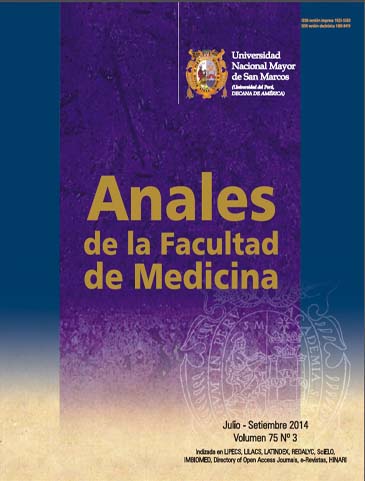The problem of Peruvian doctors doing rural service: conclusions of the Segunda Convención Nacional de Médicos Serumistas 2013
DOI:
https://doi.org/10.15381/anales.v75i3.9785Abstract
In 1981, Peru was born in Rural and Urban Service Marginal Health (SERUM), a program of community service in primary care, in which health professionals participating graduates, colleges and business for the year of the profession. Currently, the SERUM is the main instrument of the Peruvian health system in the search for an adequate supply of health professionals in vulnerable populations. Achieving, inter alia, that maternal mortality decreased significantly in some parts of Peru (1), and the coverage of health personnel in extremely poor districts increased from 52% to 89% (2).Downloads
Published
2014-09-15
Issue
Section
Cartas al Editor
License
Copyright (c) 2014 Fiorella Inga Berrospi, Álvaro Taype Rondán, Nelson Purizaca Rosillo

This work is licensed under a Creative Commons Attribution-NonCommercial-ShareAlike 4.0 International License.
Those authors who have publications with this magazine accept the following terms:
- Authors will retain their copyrights and guarantee the journal the right of first publication of their work, which will be simultaneously subject to Creative Commons Attribution License that allows third parties to share the work as long as its author and its first publication this magazine are indicated.
- Authors may adopt other non-exclusive licensing agreements for the distribution of the version of the published work (eg, deposit it in an institutional electronic file or publish it in a monographic volume) provided that the initial publication in this magazine is indicated.
- Authors are allowed and recommended to disseminate their work over the Internet (eg: in institutional telematic archives or on their website) before and during the submission process, which It can produce interesting exchanges and increase quotes from the published work. (See El efecto del acceso abierto ).
How to Cite
1.
Inga Berrospi F, Taype Rondán Álvaro, Purizaca Rosillo N. The problem of Peruvian doctors doing rural service: conclusions of the Segunda Convención Nacional de Médicos Serumistas 2013. An Fac med [Internet]. 2014 Sep. 15 [cited 2024 Jul. 17];75(3):271-2. Available from: https://revistasinvestigacion.unmsm.edu.pe/index.php/anales/article/view/9785















